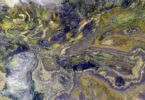World War II was one of the most significant events in human history, with lasting implications that continue to shape our world today. In this critical examination and assessment of World War II history, we will delve into the key events, decisions, and consequences of this global conflict. By analyzing the strategies of world leaders, the impact on civilians, and the aftermath of the war, we aim to provide a nuanced understanding of this pivotal period in history. Join us as we explore the complexities and controversies surrounding World War II.
1. Setting the Stage: Why World War II Continues to Influence Modern Histories
In examining the enduring influence of World War II on modern histories, it becomes evident that the repercussions of this global conflict extend far beyond the confines of the 1940s. The complexities of this war, both politically and socially, have left a lasting impact on countries worldwide, shaping the course of international relations and geopolitics for decades to come. By delving into the nuanced intricacies of World War II, historians can gain invaluable insights into the roots of key contemporary issues, such as nationalism, militarism, and humanitarianism.
Moreover, the legacies of World War II continue to resonate in various aspects of our society, from cultural artifacts and memorials to diplomatic strategies and societal norms. With each passing year, new discoveries and interpretations emerge, challenging us to reassess our understanding of this pivotal moment in history. By critically examining the lasting effects of World War II, we can better appreciate the complexities of our past and make more informed decisions for the future.
2. Dissecting Key Events: A Microscopic View of World War II Battles
World War II battles were pivotal moments in history, shaping the world as we know it today. The Battle of Stalingrad stands out as one of the most brutal conflicts, symbolizing the turning point for the Allies against the Axis powers. The D-Day invasion, also known as the Normandy Landings, showcased the importance of strategic planning and coordination in warfare. These key events serve as a microscopic view into the intense struggles and sacrifices made during World War II.
The Battle of Midway further highlights the significance of naval warfare, demonstrating the impact of intelligence and tactical decisions on the outcome of a battle. The Battle of Britain was a crucial air campaign that showcased the resilience and determination of the British forces against the German Luftwaffe. Each battle provides unique insights into the complexities and challenges faced by both sides during the war.
3. The Home Front Debacle: Unraveling the Social and Economic Impact of World War II
In the chaotic aftermath of World War II, the repercussions of the conflict extended far beyond the battlefield, seeping into the very fabric of society and economy. The Home Front Debacle explores the profound social and economic impact of the war on civilians, unraveling the intricate web of challenges faced by individuals and communities during this tumultuous period.
Social Impact: The war disrupted traditional family structures and societal norms, leading to a redefinition of gender roles and responsibilities. Women entered the workforce in unprecedented numbers, challenging stereotypes and paving the way for greater gender equality. Additionally, the war spurred migration patterns, as people sought refuge and opportunities in new territories, further reshaping cultural landscapes.
Economic Impact: Scarce resources, rationing, and inflation wrought havoc on economies, creating widespread poverty and uncertainty. The war machine consumed vast amounts of capital and labor, leaving behind a legacy of debt and economic volatility. Postwar reconstruction efforts struggled to restore stability and prosperity, highlighting the lasting scars of wartime upheaval.
4. Creative Untruths: Challenging the Accepted World War II Propaganda Narratives
In examining the accepted World War II propaganda narratives, it becomes clear that there are instances of creative untruths woven into the fabric of historical accounts. These fabrications have not only shaped the way we understand the war but have also influenced modern perceptions of key events. By challenging these narratives, we are presented with an opportunity to delve deeper into the complexities of World War II and to uncover the truths that may have been obscured by propaganda. It is crucial to approach these historical accounts with a critical eye and to question the validity of the information that has been passed down through generations.
Understanding the impact of creative untruths on our perceptions of history is essential for gaining a more accurate understanding of the events that transpired during World War II. By acknowledging and challenging these accepted narratives, we can work towards a more nuanced and comprehensive understanding of the complexities of war and its lasting effects on society. In doing so, we can paint a more accurate picture of the past and learn valuable lessons that can inform our decisions in the present and future.
5. Lessons from the Past: Recommendations for Utilizing World War II History in Society Today
Utilizing World War II history in society today requires a careful examination and assessment of the lessons learned from this pivotal moment in our collective past. By critically analyzing the events, outcomes, and aftermath of World War II, we can glean valuable insights that can inform our present decisions and actions.
Recommendations for Utilizing World War II History in Society Today:
- Educational Programs: Implementing comprehensive educational programs that highlight the complexities and nuances of World War II can help foster a deeper understanding among current and future generations.
- Cultural Remembrance: Engaging in cultural remembrance activities, such as memorial services, exhibits, and documentaries, can ensure that the sacrifices and lessons of World War II are not forgotten.
- Promoting Peace and Understanding: Using the history of World War II as a powerful reminder of the devastating consequences of war, we can work towards promoting peace, tolerance, and mutual understanding in our global community.
Closing Remarks
In conclusion, a critical examination and assessment of World War II history reveal the complexities and nuances of this global conflict. It is essential to analyze the various perspectives, narratives, and interpretations in order to gain a comprehensive understanding of the events that unfolded during this dark period of human history. By questioning conventional wisdom and delving deeper into the historical record, we can uncover new insights and challenge long-held beliefs about World War II.
As we continue to study and reflect on the lessons of the past, it is important to approach the subject with an open mind and a critical eye. Only through a rigorous examination of the evidence and a willingness to engage with different viewpoints can we hope to gain a more nuanced understanding of World War II and its lasting impact on the world.
References:
- Beevor, Antony. “The Second World War.”
- Evans, Richard J. “The Third Reich Trilogy: The Coming of the Third Reich, The Third Reich in Power, The Third Reich at War.”
- Hobsbawm, Eric. “The Age of Extremes: A History of the World, 1914-1991.”
- Overy, Richard. “Why the Allies Won.”








Leave a Comment